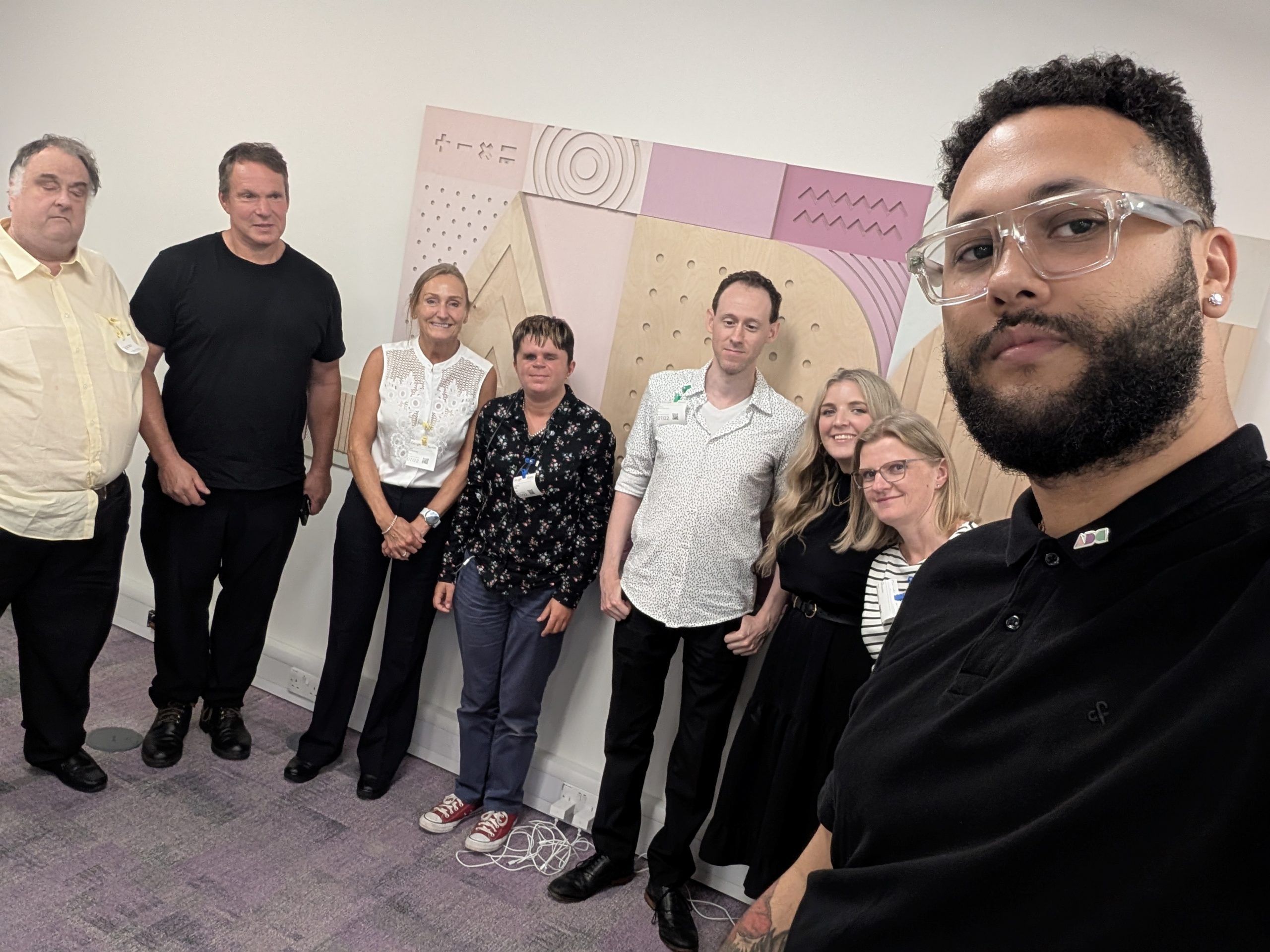Join our mailing list
Get the latest on our campaigns, news and events from Thomas Pocklington Trust by joining our mailing list
Date posted: 1st August 2025
London – Google Accessibility Discovery Centre (ADC)
On 22 July, members of Thomas Pocklington Trust’s Education, Employment, and Partnerships teams took part in a bespoke workshop at Google’s Accessibility Discovery Centre (ADC) in London.
This exciting hands-on session, co-delivered by Hans Zimmermann, ADC Coordinator, and Christopher Patnoe, Lead for Europe, the Middle East and Africa (EMEA) Accessibility and Disability Innovation, was designed specifically for our team, including colleagues who are blind or partially sighted. It focused on exploring the built-in accessibility features of Google Chromebooks, particularly their use in education settings.
“We continue to be impressed with the depth of experience and passion that TPT brings to the table and are impressed with the services they provide,” said Christopher Patnoe, reflecting on the growing partnership between Google and TPT.

The session builds on an ongoing partnership between Google and TPT, united by a shared mission: to better understand how Chromebook features can empower blind and partially sighted students, educators, and professionals alike.
Hans and Christopher kicked things off with a warm welcome and an insightful overview of the accessibility tools baked into Chrome OS and Android, emphasising that accessibility isn’t an add-on, it’s built into the very core of Google’s platforms.
From features supporting vision, hearing, motor and cognitive needs, we saw first-hand how Chromebooks are being designed with inclusion at its core.
Armed with our own Chromebooks, each participant explored a variety of tools that support independent navigation and access to learning materials. Some of the features we tested included:
We put these tools to the test through real-world tasks: editing documents, navigating with screen readers, and experimenting with Google’s own AI assistant, Gemini.
One of the highlights of the day was when voice prompts were used to generate images and stories. From adventurous dragons to a brilliantly creative kebab shop sign, the results left everyone smiling and full of awe.
“The best part of working with Google ADC is they genuinely care about accessibility and want to get it right,” said Sydney May, Education Technology Coordinator at TPT. “That made the session really worthwhile for me. I’m definitely keen to keep working with them and continue building this relationship.”
Also commenting on the workshop, Jen Sweeney, Corporate Partnership Manager at TPT, said:
“I really enjoy working with Christopher and Hans, they’re fantastic partners who go above and beyond to champion accessibility for people with disabilities. Since partnering with Google, they’ve supported our internship programme by providing Google Career Certificates to strengthen learning, and they’ve delivered a brilliant Skill Share session for our teams. Their commitment to inclusion is clear in everything they do.”
Reflecting on the broader impact of the partnership, Alex Henderson, Education Information Manager at TPT, highlighted the importance of accessibility in education technology:
“Google is playing an increasingly important role in education in the UK, and it is vital that we understand how Google products and platforms can be accessed fully by blind and partially sighted students so they can thrive in their learning. The work we have been doing with Google has been very valuable in progressing this area of work, and we really look forward to collaborating with them further in the future.”
If you’d like to find out more about how you can support our work, please contact Jen Sweeney at jen.sweeney@pocklington.org.uk
We wrapped up with a group discussion to reflect on what worked well, what could improve, and where we’d love to see the tools go next. It was a powerful reminder of the importance of involving people with lived experience in shaping accessible technology.
We’ll be using the insights gathered to update our Chromebook accessibility guide and expand the resources we offer for blind and partially sighted students and education professionals.
Next up? We’re excited to reconnect with Google in California this September for an online session focused on ChromeVox screen reader and braille support; continuing the journey towards making education more inclusive for all.
Huge thanks to Hans, Christopher and the entire Google Accessibility team for hosting such a brilliant day at the ADC. We left inspired, informed, and ready to put learning into action.
Stay tuned for updates to our Technology in Education resources where we’ll be sharing guidance, insights, and any exciting developments.